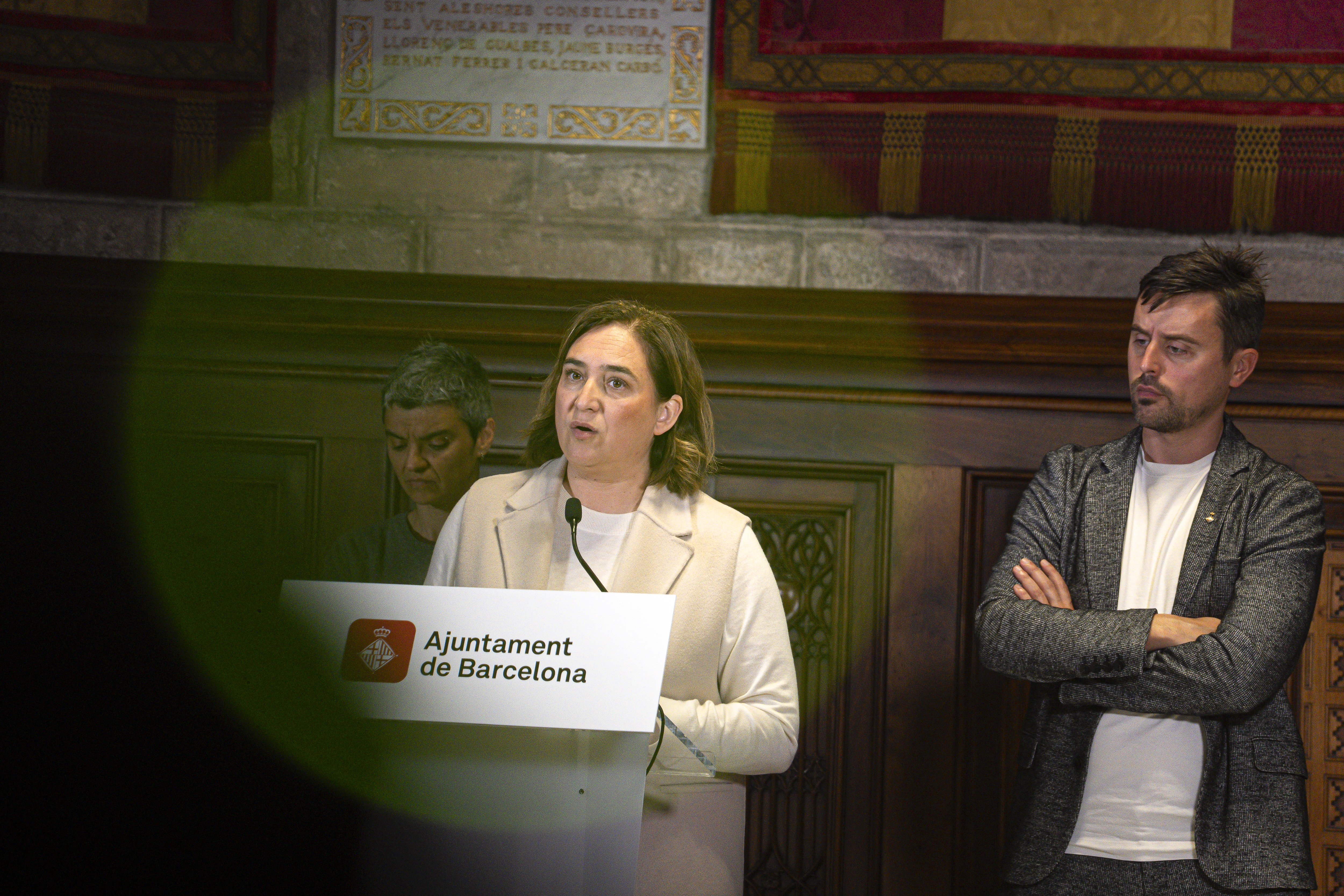A court in Barcelona is to investigate mayor Ada Colau and council member Janet Sanz for the superblocks of the Eixample district, after accepting the complaint filed by a former leading municipal architect, Josep Antoni Acebillo (with lawyers Francesc Jufresa and Ferran Grasas). According to the ACN agency and as confirmed by ElNacional.cat, the judge of Barcelona court number 26 has asked for certain documentation, but has not yet set a date for taking statements from those under investigation or from witnesses. Nor has she imposed any precautionary measures, although the public prosecutors still have to give their opinion on this.
Acebillo filed a complaint three weeks ago against Barcelona mayor Colau and deputy mayor for city planning Sanz, for a crime of city planning and another crime of misuse of public funds with regard to the council's development of superblocks, known as superilles in Catalan - a plan that intends to exclude cars from many streets and create green axes across the city, with works currently underway in the central Eixample district. In fact, the complaint by Acebillo and the Salvem Barcelona platform had been submitted to the public prosecutors last year, and although the prosecutors decided not to proceed with it a month ago, they then successfully resubmitted it to the court. The first goal of the complaint is to obtain an interim injunction to stop the construction and "avoid the full consummation" of the crimes they consider are being committed and the damages that may be caused - estimated at more than 100 million euros.
The architect and the lawyers asserts that the superblocks in the Eixample district are "a clear breach of the land law that could have devastating effects" both for individuals and businesses in general, to the point of generating "accessibility problems of basic services to homes". It would also affect the public treasury, "because considering only the costs of tearing up asphalt and its eventual replacement" would involve expenses of 100 million euros.
Beyond Colau and Sanz, the complaint is also directed against the members of the city council's governance committee who voted to definitively pass the executive redevelopment projects linked to the green axes of the Eixample in the session of May 26th, 2022 - unless they had made some reservation over the votes they cast regarding the legality of the agreements. In this aspect, the complaint was also extended to include the public servants who had presented technical reports greenlighting the superblocks.
Eliminating essential public roads
The architect and the two lawyers asserted that in order to recategorize the use of this public space, the city's General Metropolitan Plan (PGM) must first be modified, to reflect the changes set down for these green axes. The text stated that the city council had approved agreements on "executive projects for the redevelopment of the area around the newly-created squares located at the crossroads of the new green axes", which referred in particular to Carrer Consell de Cent (between Carrer Vilamarí and Passeig de Sant Joan), as well as to other cross streets between Diagonal and Gran Via, all integrated into the superilla Barcelona plan. By means of these agreements "essential public roads of the city are being substantially transformed, if not eliminated".
The complaint added that "a radical change to the roads and the mobility system" is being promoted in the center of Barcelona, "eliminating the circulation of vehicles in the affected streets". Despite this significance and "its obvious impact" on people, goods and businesses, the problem is that the project has been processed as if it were "simple ordinary urban roadworks, ignoring the planning implications that this decision has" and that "require a prior or simultaneous modification of the current urban planning base, specifically of the PGM". They also emphasized that the municipal action "contradicts" the land law that reserves for the PGMs the "layout and characteristics of the street network".
Meanwhile, they also criticized the decision of the public prosecutors to close the investigative file that was opened following their initial complaint and stated that the prosecution service "limited itself during 10 months of alleged consideration" of the complaint to "carrying out a legal pseudo-investigation" - while asking the city council itself to report on the reasons behind the implementation of the Eixample superblocks. "That is to say, that instead of taking a statement from [city council members] as people under investigation, the prosecutor asked them to draw up a legal report, which obviously does not give any explanation, it is nothing more than a self-exculpatory allegation", the complainants concluded.

